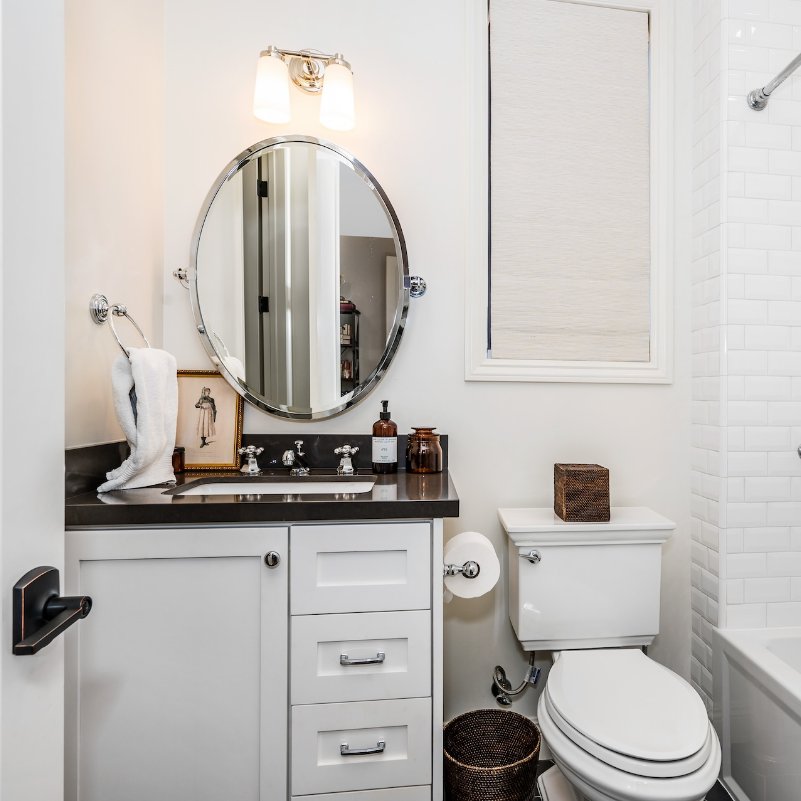Common Bathroom Habits That Clog Drains
1. Letting Hair Go Down the Drain
Hair is one of the biggest culprits behind blocked drains. Every time you shower or brush your hair over the sink, loose strands wash down the drain, accumulating over time. Hair binds with soap scum and other debris, forming stubborn clogs that restrict water flow.Solution:
- Use a drain cover or hair catcher to trap strands before they enter the pipes.
- Regularly clean out the collected hair to prevent buildup.
- If you notice slow drainage, use a drain snake to remove hair clogs before they worsen.
2. Flushing Non-Flushable Items
Toilets are designed to handle human waste and toilet paper—nothing else. Yet, many people flush items like:- Wet wipes (even "flushable" ones don’t break down easily)
- Cotton balls and swabs
- Dental floss
- Feminine hygiene products
Solution:
- Always dispose of non-flushable items in the trash.
- Educate household members (especially children) about what should and shouldn’t be flushed.
3. Pouring Grease and Oils Down the Sink
While this is more common in kitchens, some bathroom habits—like washing oily skincare products down the sink—can also contribute to blocked drains. Grease hardens as it cools, sticking to pipe walls and trapping other debris.Solution:
- Wipe excess oils (like makeup removers or hair serums) with a tissue before rinsing.
- Avoid pouring any fats or oils down the drain.
4. Overusing Chemical Drain Cleaners
When faced with a slow drain, many people reach for chemical drain cleaners. While these products can provide a quick fix, they often do more harm than good. The harsh chemicals can:- Corrode pipes over time, leading to leaks.
- Kill beneficial bacteria in septic systems.
- Fail to fully clear blockages, requiring professional drain clearing
- Use a plunger or drain snake for minor clogs.
- For tougher blockages, try a natural solution like baking soda and vinegar followed by hot water.
- If the clog persists, call a professional plumber instead of repeatedly using chemicals.
5. Ignoring Slow Drains
A slow-draining sink or shower might seem like a minor annoyance, but it’s often an early warning sign of a developing clog. Ignoring it allows debris to build up, leading to a complete blockage that may require professional drain clearing.Solution:
- Address slow drains immediately by using a plunger or drain snake.
- Regularly flush drains with hot water to prevent buildup.
How to Prevent Drain Damage Long-Term
1. Install Drain Screens
A simple mesh screen over shower and sink drains can catch hair, soap scraps, and other debris before they enter the pipes.2. Regular Maintenance
- Monthly deep clean: Pour a mixture of baking soda and vinegar down drains, followed by hot water, to break down buildup.
- Annual inspections: Have a plumber check your pipes for hidden blockages or early signs of damage.
3. Proper Disposal Habits
- Never flush anything except toilet paper.
- Scrape excess toothpaste, soap, and hair products into the trash before rinsing.
4. Use Enzyme-Based Cleaners
Unlike harsh chemicals, enzyme drain cleaners use natural bacteria to break down organic matter without damaging pipes.When to Call a Professional
If you’ve tried DIY methods and still experience:- Persistent slow drainage
- Gurgling sounds from pipes
- Foul odors coming from drains
- Water backing up in sinks or showers
Final Thoughts
Small changes in your bathroom routine can make a big difference in preventing blocked drains. By being mindful of what goes down your sink and shower, using drain guards, and performing regular maintenance, you can avoid costly plumbing issues. If a clog does occur, opt for gentle clearing methods before resorting to chemicals—and don’t hesitate to seek professional help when needed.Taking these steps will keep your drains flowing smoothly and extend the life of your plumbing system. Your future self (and your wallet) will thank you!

